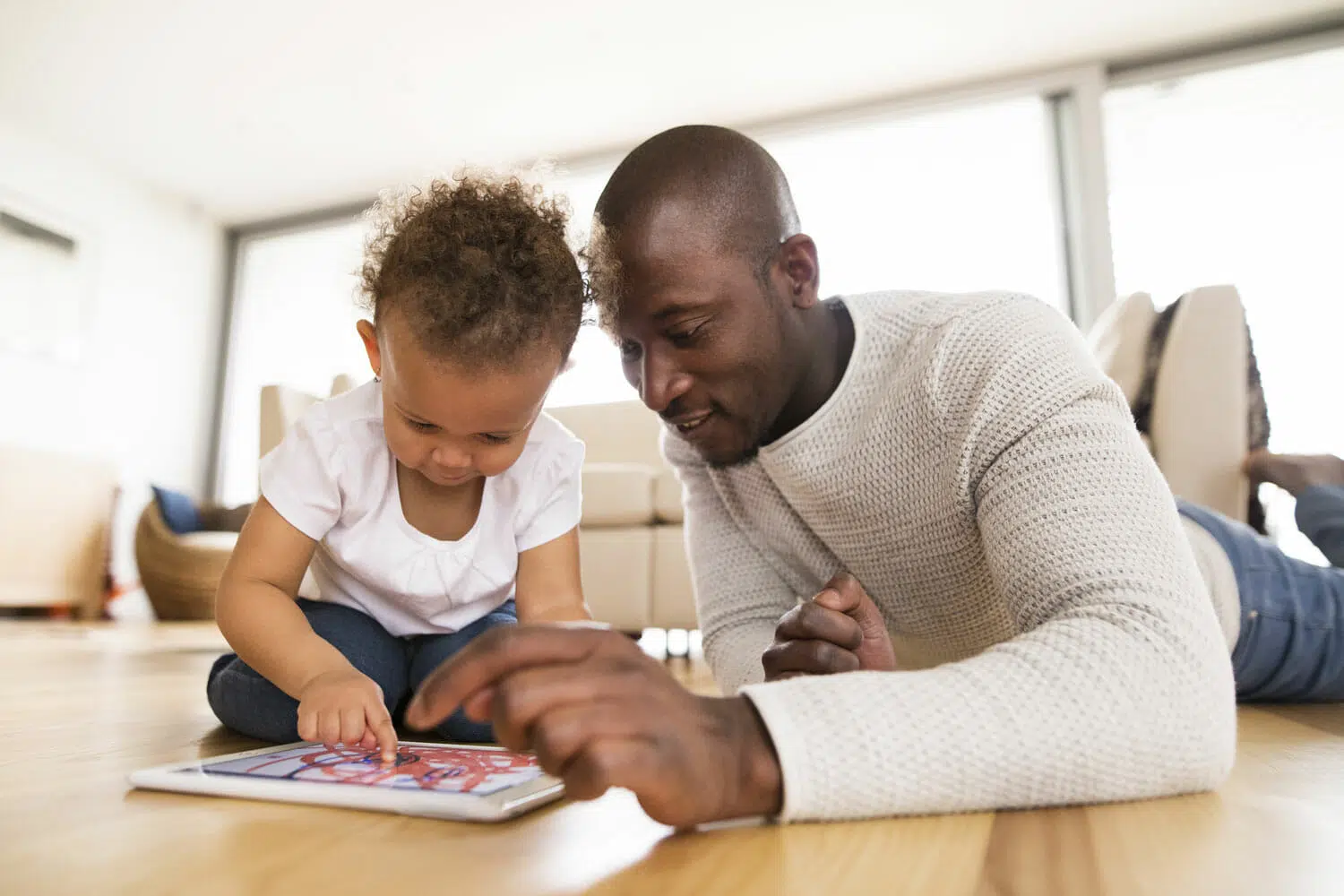Ice baths help bring down fever in children. Babies can sleep on their stomachs. Toddlers can sleep with stuffed animals. These are all examples of horrendously bad but common parenting 30 or so years ago. For the record, these are all exactly what NOT to do with young children; we used them here for dramatic effect. We do not condone any of those outdated practices in parenting. Most grandparents do not know these are all terrible mistakes because they were common practice decades ago. With each new technology, parenting becomes harder. For today’s parent, how much screen time is appropriate for your children?
Defining Screen Time
Actual paper books, magazines and newspapers never count as screen time. Rereading The Foot Book 27 times in a day at age five is absolutely fine; staring at five hours of a smartphone screen at age five is terrible.
What defines screen time? It is when your child (of any age) uses one of these devices:
- Television
- Computer
- Laptop
- Tablet
- Smartphone
- Gaming device
- Smart watch
Your teenager who sits for two hours texting and visiting social media with her smartphone is engaged in screen time. Your eight-year-old playing with a Nintendo 2DS XL is using screen time. Your 11-year-old binge-watching The Great British Baking Show is fixated on screen time. Your toddler chewing the corners of a board book is not engaged in screen time.
What do the Experts Say is a Good Amount of Screen Time?
The problem with headlines and today’s 24-hour news cycle is our attention spans. We are seldom willing to spend more than a few seconds browsing (much less reading in depth) an article that is not immediately relevant. With niche marketing on our computers, tablets, smartphones and internet-connected television, we can choose the news we plan to use.
This makes experts’ opinions difficult to gauge. If you have a bias toward one media outlet or another, you will come to rely on their “experts,” even if those experts have scant credentials.
Worse, if you rely on social media, you may depend on random advice from total strangers with no education or experience in a topic. Due to confirmation bias, people tend to pick “experts” who support their original position, not who have unassailable expertise.
To find actual experts (who, still, may disagree with each other), look for voices of authority from reputable organizations related to your research topic. So, with screen time, ignore Gwyneth Paltrow’s Goopy alarmism and go with someone from the American Academy of Pediatrics (AAP).
The AAP on Kids’ Screen Time
Turning to credentialed experts at the AAP, we find that screen time limits vary by age, but beyond time, AAP insists on other metrics. First, we can summarize screen time limits:
- Children two and under — No screens for you! As AAP says, “Children younger than 2 years need hands-on exploration and social interaction with trusted caregivers to develop their cognitive, language, motor, and social-emotional skills”
- Two to five — Limit your kids to one hour per day of high-quality programming; view the programming with your kids; help your children understand what they are seeing; help them apply newly gained knowledge to the world around them
- For children older than five, the AAP offers a Family Media Plan so you can decide how much screen time your child realistically should have. The interactive tool automatically subtracts the recommended sleep time for each age group, then leaves it to you, the parent, to decide how much time is needed for chores, homework, family time, and so on.
Using the tool, many Virginia Dads may be surprised to find typical activities leave no time for screens. For a working teenager with after-school activities like band, drama or sports, the part-time job may combine with the recommended nine hours of sleep to leave less than an hour for screens.
Other Metrics: Quality and Content
AAP goes beyond mere time limits and offers advice to Virginia’s Dads about the quality and content of screens:
- Turn off devices when not in use — Avoid using television as white noise in the background
- Never substitute devices for comfort — Do not let children self-soothe with electronics
- Model behavior — Put down your own smartphone or tablet and spend time talking or playing with your kids
- Sacred time — Meals, an hour before bedtime, and playtime are all sacrosanct; screens are not allowed during those times
- Watchful — No matter their age, your children need to know you expect to see what they are seeing and doing on screens, at any time; follow up by actually checking what they are doing
- Real world — Encourage exploration, fine motor and gross motor skills, and social interactions with real people; discourage reliance on screens
You are the parent, even if your parenting duties are split with your ex-wife. Your house means your (polite but firm) rules. You have no need to be aggressive later on if you are assertive early.
When you reach The Firm For Men at 757-383-9184, or connect with us online, you can be sure our televisions are off and our full attention is on our clients’ needs. We represent Virginia men in all areas of family law, including parenting time (visitation) and child custody.

